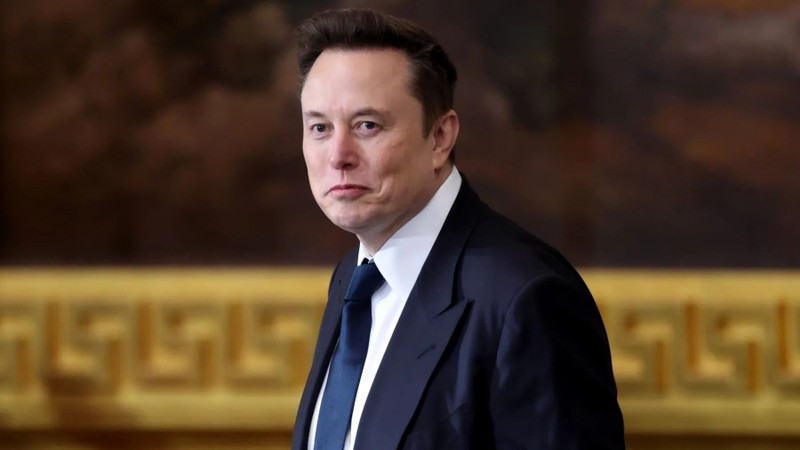In today’s world, Elon Musk is synonymous with innovation, disruption, and astronomical wealth. As the CEO of Tesla, founder of SpaceX, and head of various other ventures like Neuralink and X (formerly Twitter), Musk’s net worth has soared into the hundreds of billions. However, few people know that his entrepreneurial journey began not in Silicon Valley boardrooms or on rocket launch pads, but with a childhood filled with curiosity, a homemade video game, and the humble act of selling candy.

A Curious Child with Big Dreams
Born in Pretoria, South Africa in 1971, Elon Musk displayed exceptional intelligence and creativity from an early age. A voracious reader, he devoured everything from encyclopedias to science fiction novels. His fascination with technology grew when, at the age of 10, he taught himself how to program on a Commodore VIC-20—a popular home computer of the time.

By age 12, Musk had already created his first product: a space-themed video game called Blastar. The rudimentary game required players to destroy alien freighters carrying deadly hydrogen bombs. Though simplistic by modern standards, it was a significant achievement for a child with no formal training. Musk sold the code for Blastar to a magazine for approximately $500, a modest amount, but a major first step in his journey as a tech entrepreneur.
Sweet Profits: The Candy Sales Venture
While many 12-year-olds were content playing with toys, Musk was already looking for ways to earn and learn. Alongside his brother Kimbal, he launched an early business selling candy to classmates. The boys would buy chocolate bars in bulk from a local wholesaler and resell them individually at school for a profit.
This small-scale candy operation may seem trivial compared to building electric vehicles or launching rockets, but it demonstrated a foundational skill Musk would continue to hone throughout his life: identifying market opportunities and turning them into profitable ventures.
More importantly, it revealed Musk’s early understanding of risk and reward, and his comfort with bending traditional rules to achieve his goals—qualities that continue to define his approach to business today.
Early Ventures: Zip2 and X.com
After moving to Canada at 17 and later transferring to the University of Pennsylvania, Musk continued to pursue his interest in technology and entrepreneurship. He dropped out of a PhD program at Stanford just two days in to chase internet opportunities during the dot-com boom.
In 1996, Musk co-founded Zip2, a company that provided business directories and maps for newspapers—essentially an early version of Google Maps mixed with Yelp. The company was sold to Compaq for nearly $300 million in 1999, netting Musk $22 million.

Not one to rest, Musk immediately reinvested his earnings to create X.com, an online payment company that later became PayPal after a merger. In 2002, PayPal was sold to eBay for $1.5 billion, with Musk receiving $165 million for his shares.
Scaling Up: Tesla, SpaceX, and Beyond
With capital and confidence, Musk set his sights on more ambitious ventures. In 2002, he founded SpaceX, with the audacious goal of making space travel more affordable and ultimately colonizing Mars. In 2004, he joined Tesla Motors, an electric vehicle company, eventually becoming its CEO and the face of the global shift to clean energy.
Over the next two decades, Musk’s ventures expanded into artificial intelligence (OpenAI), neurotechnology (Neuralink), tunnel transportation (The Boring Company), and social media (acquisition of Twitter, rebranded as X). His companies have reshaped industries and redefined what is possible in business, science, and engineering.
The Consistent Thread: Entrepreneurial Grit
Despite his meteoric rise and larger-than-life persona, Musk’s journey is deeply rooted in the same principles he demonstrated as a child: curiosity, risk-taking, and relentless problem-solving. The homemade video game wasn’t just a fun project—it was an early example of his willingness to learn complex systems and create something out of nothing. The candy sales weren’t just a schoolboy hustle—they were a lesson in supply chains, pricing strategy, and consumer behavior.
Musk himself has often stated that failure is an acceptable outcome, but not trying is not. This mindset can be traced back to his early days of tinkering with computers and spotting business opportunities in everyday settings.
Conclusion: From Sweet Treats to Spacecraft
Elon Musk’s path from candy sales to spacecraft might seem improbable, but it underscores an important truth about entrepreneurship: it often starts small. What sets Musk apart is not just his intelligence or access to capital, but his unrelenting drive to innovate and disrupt.
In many ways, his story serves as a blueprint for aspiring entrepreneurs—proof that billion-dollar empires can begin with nothing more than a few candy bars and a curious mind.
News
Move over ordinary crime shows — this Netflix anthology starts with the m-u:rder already solved in broad daylight, no mask, no chase, no mystery about who did it!
Netflix’s The Sinner doesn’t play by the usual crime-drama rules. It starts with the murder in broad daylight — no…
Move over typical detective shows — this BBC t-h:riller starts like a classic c-rime investigation but quickly turns into a terrifying descent into madness that will leave you questioning everything you just watched.
Marcella makes you think you are watching a detective solve crimes — but half an hour in, you realise you…
LIFETIME JUST DROPPED ONE OF THE MOST C-HILLING TRUE-CRIME DRAMAS YOU’LL EVER WATCH — AND IT’S BASED ON A REAL-LIFE NIGHTMARE THAT STILL H-AUNTS NEW JERSEY!
Lifetime’s Suitcase Killer: The Melanie McGuire Story, which premiered on January 12, 2025, is a gripping, unflinching true-crime drama that…
Move over typical h-orror shows — this long-running anthology series from TV is still the gold standard for gory, twisted storytelling that actually keeps you guessing until the very last second.
Since its debut in 2016, Slasher has quietly established itself as one of the most consistently inventive and brutally entertaining…
IF YOU LOVE RAW, UNFORGETTABLE W-A:R STORIES THAT HONOR REAL HEROES WITHOUT EVER GLAMORIZING THE H-O:RROR, THIS HBO MASTERPIECE IS THE ONE YOU NEED TO WATCH (OR REWATCH) RIGHT NOW!
When HBO premiered Band of Brothers in September 2001, it didn’t just launch a television series — it set a…
“SHE ALWAYS LOVES ANIMALS… MAYBE THAT’S WHY SHE LET HER GUARD DOWN AND GOT HURT..!” Her grieving father just spoke out — and his words are absolutely shattering.
“Until we meet again, Piper, fly with angels,” Piper James’ grandmother wrote in tribute to the backpacker The Australian island…
End of content
No more pages to load












